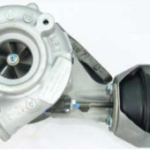Turbochargers are critical for modern engines, providing enhanced power, improved fuel efficiency, and reduced emissions. However, like any high-performance component, turbos are subject to wear and tear over time. Even minor issues can impact engine performance, fuel economy, and emissions. Turbo refurbishment offers a practical solution by restoring worn components, optimizing functionality, and extending the life of the turbocharger. Understanding common turbo problems helps vehicle owners recognize when refurbishment is necessary.
The Importance of a Healthy Turbo
A turbocharger increases the volume of air entering the engine, improving combustion efficiency and engine output. When functioning correctly, it provides:
- Better acceleration and overall performance
- Enhanced fuel efficiency
- Reduced exhaust emissions
Worn or damaged turbos reduce these benefits, often causing secondary engine issues if left unaddressed. Refurbishment restores efficiency, ensuring the engine operates reliably and sustainably.
Common Turbo Issues
1. Loss of Engine Power
One of the first signs of turbo wear is a noticeable drop in engine performance. Reduced boost pressure leads to slower acceleration and diminished power output. In commercial vehicles or performance cars, this can significantly affect operational efficiency or driving experience.
2. Increased Fuel Consumption
A turbo that is not functioning efficiently can cause incomplete combustion. As a result, fuel consumption rises, impacting running costs for fleet vehicles and individual drivers alike.
3. Excessive Smoke
Excessive smoke from the exhaust—often blue or black—is a clear indicator of turbo issues. Blue smoke usually signals oil leakage into the combustion chamber, while black smoke indicates over-fueling due to reduced turbo efficiency.
4. Unusual Noises
Whining, whistling, or rattling sounds during acceleration often indicate imbalance, bearing wear, or damaged blades. These noises are early warning signs that turbo components may require attention before more severe damage occurs.
5. Oil Leaks
Turbochargers rely on a steady flow of oil for lubrication and cooling. Leaks or oil contamination can compromise turbo performance, reduce engine efficiency, and increase emissions.
6. Warning Lights and Codes
Modern vehicles use sensors to monitor turbo performance. Engine warning lights related to boost pressure, actuator position, or airflow can indicate underlying turbo issues that require assessment.
How Turbo Refurbishment Addresses These Issues
Turbo refurbishment is designed to restore performance without replacing the entire unit. Key benefits include:
- Restored boost pressure – Corrects power loss by ensuring optimal airflow and pressure.
- Improved fuel efficiency – Refurbishment restores combustion efficiency, reducing fuel consumption.
- Reduced emissions – Properly functioning turbos maintain clean exhaust levels.
- Balanced operation – Rotor balancing eliminates vibrations and unusual noises.
- Seal and bearing integrity – Prevents oil leaks and maintains proper lubrication.
By addressing these issues, refurbishment ensures engines operate safely, efficiently, and sustainably.
Benefits Across Vehicle Types
Passenger Vehicles
For daily drivers, refurbished turbos restore smooth acceleration, reduce fuel costs, and improve overall driving experience.
Commercial Fleets
Fleet vehicles benefit from reduced downtime, consistent performance, and improved fuel efficiency, translating into cost savings and more reliable operations.
High-Performance Vehicles
Sports cars and performance vehicles maintain precise boost levels, ensuring optimal power delivery while protecting high-performance engines from damage.
Recognizing the Need for Refurbishment
Early detection of turbo problems is crucial. Vehicle owners and fleet operators should monitor:
- Engine power and responsiveness
- Fuel consumption trends
- Exhaust smoke characteristics
- Unusual engine noises
- Dashboard warning lights
Timely refurbishment prevents minor issues from escalating into serious engine damage, preserving both performance and environmental compliance.
Specialist Expertise in Turbo Refurbishment
Modern turbos, especially those with variable geometry or electronic actuators, require precise handling during refurbishment. Incorrect procedures can reduce efficiency, increase emissions, or even damage the engine. To ensure optimal results, it is essential to find a specialist near you who can professionally assess and refurbish turbochargers. Experienced specialists verify rotor balance, check seals and bearings, and calibrate actuators to maintain peak performance and reliability.
Environmental and Economic Advantages
Refurbishment offers benefits beyond engine performance:
- Reduced waste – Reusing turbo components prevents unnecessary disposal of high-value metals.
- Energy conservation – Refurbishment consumes less energy than producing a new turbo from scratch.
- Fuel savings – Improved turbo efficiency reduces fuel consumption and emissions.
- Extended engine life – Restored turbos reduce stress on other engine components, delaying costly replacements.
These advantages make turbo refurbishment an eco-conscious and financially sound option for vehicle owners and fleet operators alike.
The Future of Turbo Maintenance
As turbo technology evolves, refurbishment practices will continue to adapt. Emerging trends include:
- Electric-assisted turbos – Requiring precise calibration during refurbishment to maintain efficiency.
- Lightweight alloys and composites – Ensuring durability while reducing operational weight.
- Hybrid-compatible turbos – Integration with hybrid powertrains requires specialized refurbishment expertise.
Staying proactive with refurbishment ensures that modern engines continue to perform reliably while minimizing environmental impact.
Conclusion
Turbo issues can significantly affect engine performance, fuel efficiency, and emissions. Common problems like power loss, increased fuel consumption, smoke, unusual noises, and oil leaks signal the need for attention. Turbo refurbishment restores worn components, optimizes efficiency, and extends the operational lifespan of engines across passenger vehicles, commercial fleets, and performance cars.
By addressing these issues early, vehicle owners benefit from improved performance, reduced operational costs, and lower environmental impact. Professional refurbishment ensures precision, reliability, and long-term sustainability, making it an essential component of modern vehicle maintenance.

